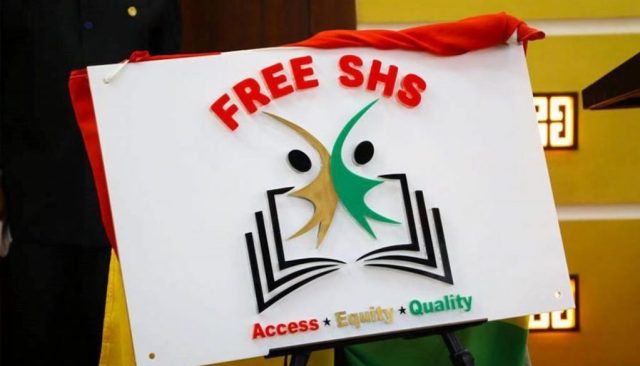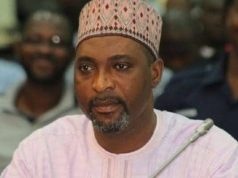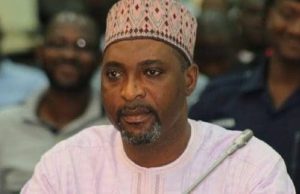Presidential candidate Alan Kyerematen has unveiled an ambitious plan to reform Ghana’s Free Senior High School (SHS) policy, aiming to address key challenges in its sustainability and the pathways available for graduates transitioning into higher education or the workforce.
Speaking during the Presidential Encounters 2024 on November 22, Kyerematen acknowledged the success of the Free SHS program but argued that it has significant gaps that need urgent attention for it to truly achieve its potential.
While he described the Free SHS policy as a landmark initiative, Kyerematen pointed out that it currently lacks provisions for what comes after graduation. “The Free SHS program is a great policy, and I doubt whether any government would discontinue it. However, after Free SHS, what next?” he questioned. Kyerematen emphasized that providing free education without clear pathways for students to continue their journey into either tertiary education or the job market weakens the policy’s long-term impact.
As part of his Great Transformational Plan (GTP), Kyerematen proposed a series of reforms focused on five key areas: ensuring financial sustainability, improving infrastructure, updating the curriculum, enhancing teacher capacity, and providing structured pathways for graduates to enter the workforce or pursue further education. He stressed the need to secure long-term funding for the program, questioning how the policy would continue to be financed amid economic pressures.
Infrastructure, he noted, remains a critical issue, with many schools still struggling with overcrowded classrooms, insufficient dormitories, and outdated teaching facilities. Kyerematen called for a comprehensive overhaul to improve learning conditions and ensure that the infrastructure is fit for purpose. He also raised concerns about the curriculum, which he argued does not fully prepare students for the demands of a rapidly evolving global economy. He proposed a review of the curriculum to ensure it aligns with current job market needs and modern economic realities.
Beyond the academic environment, Kyerematen pointed out the need for comprehensive training programs for teachers and administrative staff. “If we want quality education, we must first invest in our teachers,” he said, adding that capacity building for educators and school administrators is crucial for improving the overall quality of education.
To ensure that students are well-prepared for life after SHS, Kyerematen has proposed a one-year mandatory apprenticeship or internship program. This initiative aims to provide hands-on training in artisanal and entrepreneurial skills, helping students discover their talents and develop practical skills that are in high demand in the job market. He also emphasized the need for government-backed funding, mentorship, and resources for graduates who wish to start their own businesses. This, he argued, would help foster a new generation of entrepreneurs and reduce youth unemployment.
For graduates seeking careers in national security, Kyerematen pledged to create dedicated recruitment pathways into the country’s security services. He also proposed that graduates wishing to pursue higher education should receive government financial support to eliminate barriers to tertiary education. Furthermore, for those who discover their talents during internships, Kyerematen promised to provide the necessary financial backing to help them transition into full-time employment or continue advanced training.
During the encounter, Kyerematen also spoke out about the neglect of foundational education, emphasizing the importance of strengthening basic and pre-basic education. “We talk about Free SHS as if the foundation doesn’t matter,” he said, calling for greater attention to primary education to ensure students are adequately prepared for the challenges of secondary school and beyond.
In a bid to further modernize Ghana’s education system, Kyerematen unveiled a groundbreaking proposal to expand digital connectivity. He pledged to establish 100,000 free satellite internet hotspots across the country, including in all secondary schools. This initiative, he said, would provide telecom-independent internet access, helping to bridge the digital divide and improve the quality of education by making online learning resources more accessible. Kyerematen argued that the initiative would also benefit young content creators who struggle with the high costs of data.
Kyerematen’s proposed reforms envision a Free SHS program that not only guarantees access to education but also equips students with the tools and opportunities they need to succeed in the modern world. By addressing the issues of financial sustainability, infrastructure, curriculum relevance, and job readiness, he hopes to transform the program into a platform for national development that empowers Ghana’s youth to contribute meaningfully to the country’s growth.
As the 2024 elections approach, Kyerematen’s vision for a more holistic and forward-thinking Free SHS program positions him as a candidate committed to improving the educational landscape in Ghana and ensuring that the next generation of Ghanaians is equipped to thrive in a rapidly changing global economy.


















